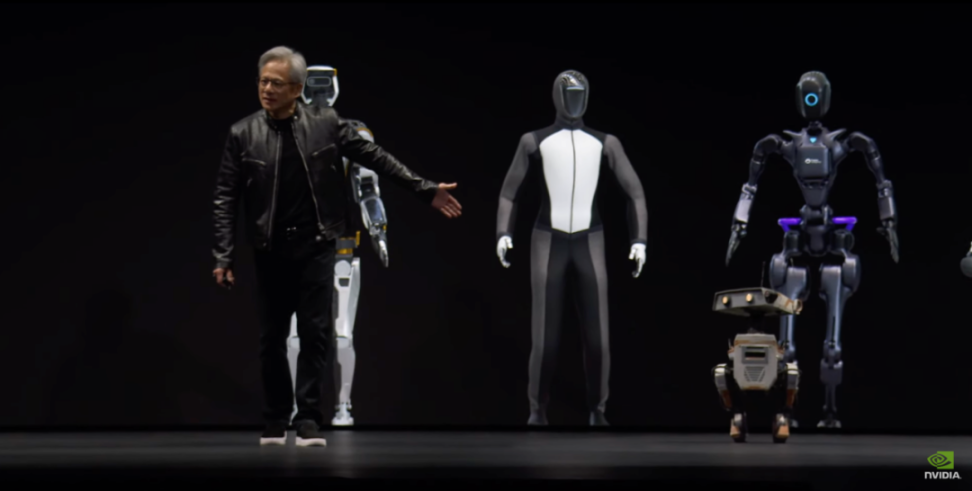
NVIDIA, the global leader in visual computing technology, announced today that it plans to launch Jetson Thor, a breakthrough computer platform designed for humanoid robots, in the first half of 2025. This move aims to provide strong core technical support to hundreds of thousands of robot manufacturers around the world and promote the rapid development and widespread application of humanoid robot technology. Jetson Thor is another important milestone for NVIDIA in the field of robotics. It will provide humanoid robots with unprecedented computing power, allowing them to perform more complex and intelligent tasks. This compact computer incorporates NVIDIA's latest technologies in artificial intelligence, robotics and high-performance computing to provide robotics developers with a powerful and flexible platform. Key features of Jetson Thor include: Powerful AI performance: Jetson Thor integrates NVIDIA's latest GPU architecture to provide excellent AI reasoning performance and support robots to perform complex perception, planning and control tasks. High energy efficiency design: Optimized for mobile platforms, Jetson Thor provides powerful computing power while maintaining an excellent energy efficiency ratio, extending the robot's running time. Rich software ecosystem: Jetson Thor seamlessly integrates with NVIDIA's Jetson software platform, providing developers with a rich set of tools, libraries and pre-trained models to simplify the development and deployment of robotics applications. Compact design: Jetson Thor adopts a compact design and is easy to integrate into various humanoid robot platforms to meet the needs of different application scenarios. Deepu Talla, vice president and general manager of robotics and edge computing at NVIDIA, said: "Humanoid robots are one of the ultimate challenges in artificial intelligence and robotics. The launch of Jetson Thor will provide robot developers with powerful tools to accelerate the innovation and application of humanoid robots. , bringing revolutionary changes to various industries.” Jetson Thor has broad application prospects, including: Manufacturing: Humanoid robots can be used to perform tasks such as assembly, handling and inspection, improving production efficiency and quality. Logistics industry: Humanoid robots can be used for tasks such as warehouse automation, package sorting and distribution, reducing operating costs. Healthcare: Humanoid robots can be used for tasks such as auxiliary care, rehabilitation treatment and surgical assistance to improve the level of medical services. Service industry: Humanoid robots can be used for tasks such as customer service, navigation and reception to enhance user experience. NVIDIA is committed to building a strong robotics ecosystem and working closely with robot manufacturers, developers and research institutions around the world to jointly promote the development and application of robotics technology. The launch of Jetson Thor is another important move by Nvidia in this field, which will inject new impetus into the future development of humanoid robots. About NVIDIA NVIDIA is the global leader in visual computing technology, and its GPU and artificial intelligence technologies are reshaping all walks of life. The company has extensive operations in markets including gaming, professional visualization, data centers and automotive.